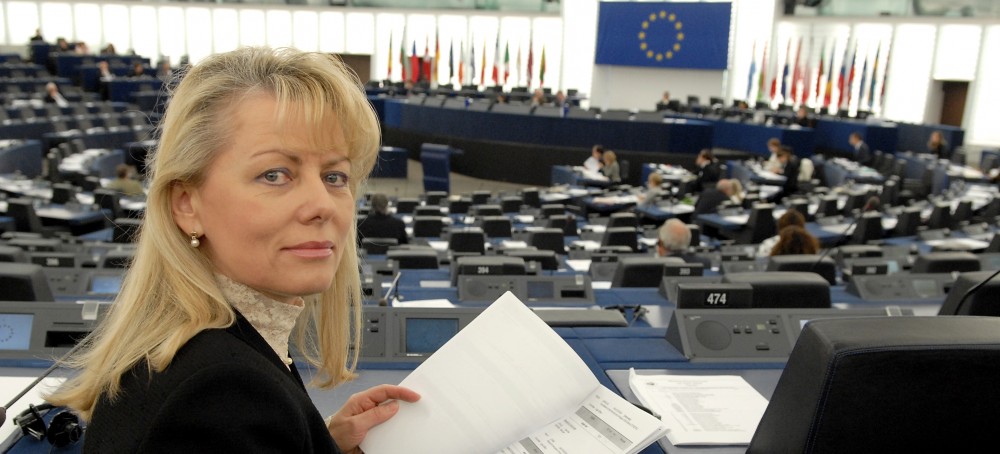In May 2012, on the basis of the Commission recommendation, the EU Council of Ministers officially designated Wrocław and Donostia San Sebastián as European Capitals of Culture for 2016.
In the preparation for 2016 both cities are submitted to a monitoring process, carried out under the responsibility of a Monitoring and Advisory Panel, to help the cities develop a high quality programme with a strong European dimension.
This Panel is formally convened on two occasions.
The first monitoring meeting took place on 15 October 2013. Ahead of this meeting a report was presented to members of the Panel indicating the preparations of Wrocław as host of the 2016 title.
Unfortunately the document shows a very grim picture concerning Wrocław’s readiness. It indicates lack of funds for the project, shortage of artistic personal and adequate staff that can see the implementation of the project. In plain words, it says Wrocław will fail realizing the project.
Quoting from the report: “the Panel would like to voice its growing concerns regarding the funding of the event. Only 37 % of the funds – corresponding to City’s contribution – have been secured so far although the time left until 2016 is now getting rather short.
It is worrisome that neither the National Government nor the Region has committed their respective part of the funding yet.
The most significant financial contribution in the overall project budget after the support from the City is due from the national government. The Panel noted that it required a long-term Government programme on the basis on an inter-ministerial agreement.
Despite the complexity of the process, the Panel urges Wrocław 2016 to continue their efforts to get a firm commitment from the national government as quickly as possible.
The next few months is the time when Wrocław 2016 should be making decisions on the artistic programming and uncertainty over financing will seriously jeopardize the timely organisation of the title year. To that extent, the Panel would like to make it clear that Wrocław failure to deliver would be seen as a failure for Poland as a whole.
The Panel welcomes the statement made by the delegation that an artistic director would be appointed by the end of this year. The Panel reiterated that the concept of “spaces for beauty” – which is at the heart of the initial artistic programme – is very complex and challenging from an intellectual point of view. It requires strong artistic guidance so as not to be misused for ideological ends. The Panel continues to insist on the need for a strong artistic leadership to ensure that the original concept presented in the bid is implemented in accordance with the application.
The detailed planning for the title year is approaching and tough choices will have to be made. Frustration among cultural players – including among the nine curators – will have to be handled properly so it is critically important to have an artistic director in a position to coordinate the work and take final decisions on programme content. It would also be extremely important to strengthen the management structure of the Foundation so that it can further make the case for Wrocław 2016 at national as well as international levels. In this respect, the Panel remains unclear about the role of the Impart 2016 Festival Office in Warsaw and its relationship with the Foundation.
The Panel noted the steps setting in place the evaluation of the ECoC and the use of the Impacts work. Whilst that work was ground breaking and is still very useful, it is pointed out that the current ECoC programme works to a different set of criteria, most notably on the “European Dimension” and on the “City and Citizens”. It is therefore recommended that Wrocław review the evaluation strategy of the Leeuwarden 2018 bid-book and adapt its own strategy to the objectives and criteria mentioned there. There should be explicit objectives in the variation of awareness of the diversity of European cultures and an increase in cultural participation in the city.
Finally, the Panel would like to remind Wrocław 2016 that they have committed at bidding stage to make the most of the diversity of their citizens. The Panel did not fully grasp during the meeting to what extent Wrocław 2016 intended not only to approach the “minorities” issue in the artistic programme but more significantly to reach out to minorities audiences.
Considering the importance of the issues raised above, the Panel asks to be updated in a short report by the end of March 2014 on the following aspects:
- amount of money, and sources, secured to cover operating expenditure; impact of the updated budget in terms of artistic programme;
- information on the appointment of an artistic director and changes in the organisational chart;
- further information regarding the governance relationship between the Foundation and the office in Warsaw and the consequences in terms of projects funded and cash flow;
- an update on the specific objectives being used for evaluation and the initial ex-ante position; initiatives to reach out to, and integrate into the programme, minorities in Wrocław”.
Emphasizing one of the statements above: “Wrocław failure to deliver would be seen as a failure for Poland as a whole”….
I wish that Wrocław will soon fulfil all of these requirements.
I greet you from the European Parliament,
Lidia Geringer de Oedenberg
—
Full report available here: http://ec.europa.eu/culture/our-programmes-and-actions/doc/ecoc/1monitoring-report-dss-wroclaw-2013.pdf
